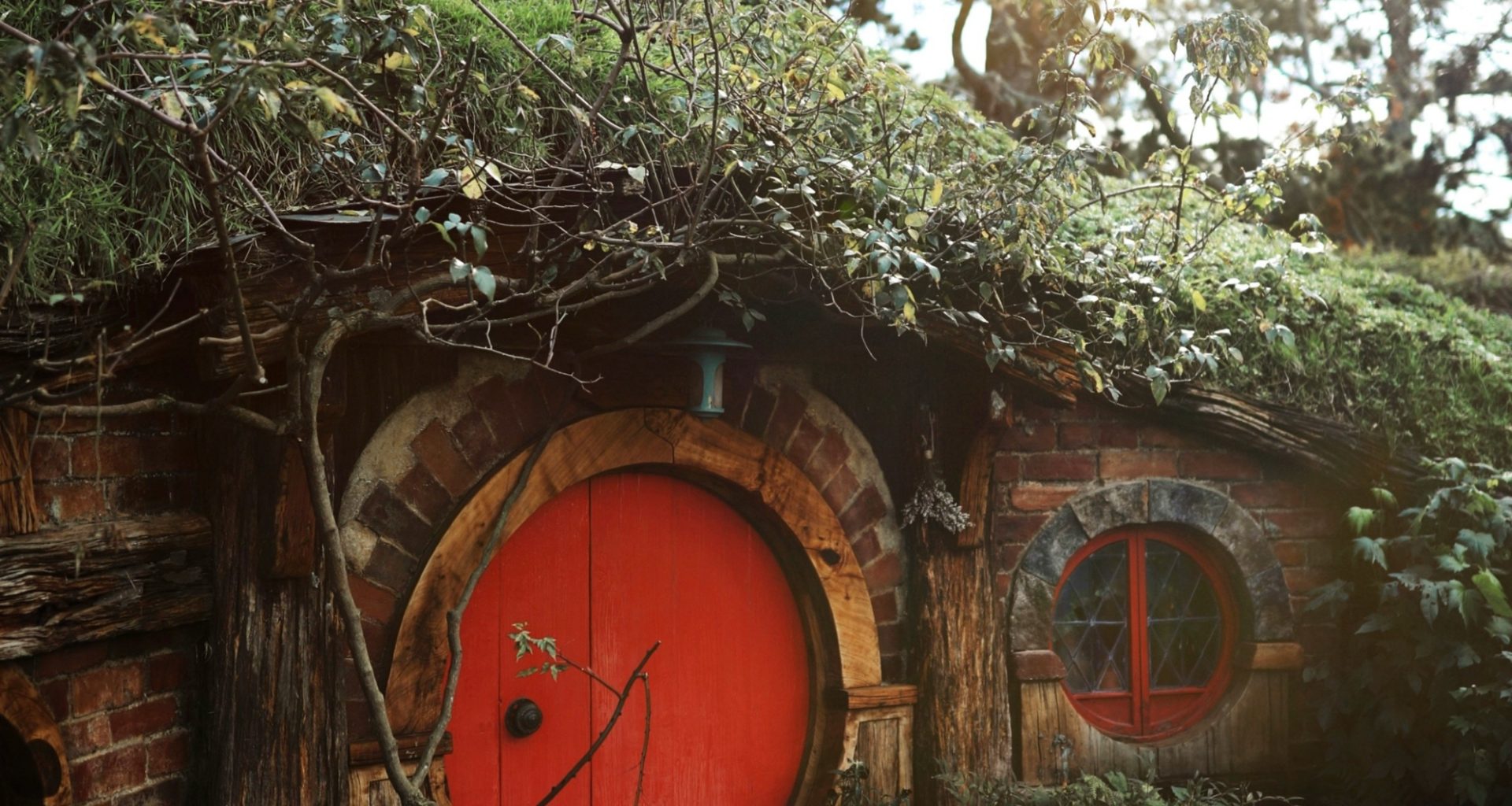It’s been nearly seventy years since Tolkien first put pen to paper and poured himself into the masterpiece that is The Lord of the Rings trilogy. It’s the sire of a million tales, some bastards and some true heirs, yet the literary analysis over this genius work is sadly lacking when compared to Shakespeare or even C.S. Lewis. Perhaps this is because we’ve lost, or refuse to acknowledge, the power of symbolic language. Tolkien did not intentionally write an allegory, as he overtly clarified in his essays (Tolkien 2018). However, he did allow a spring of intrinsic wisdom to flow into a world where faithlessness has a heavy, more tangible consequence, and hope a more precise reward. The fantastical nature of Middle Earth raises the stakes, and therefore sets a deeper contrast of moral lines. This makes his work unintentionally symbolic, in that evil and good are brought to the forefront in the physical realm. The Lord of the Rings speaks in coded glory of the pressing, beautiful burden of hope. It dresses ambition under the façade of servitude and servitude in the guise of ambition until what’s left is darkness, similar to the one which takes over Middle Earth in the story.
Strength is not forged through certain, perfected ideals, and a noble mindset is a faux if it folds in high or low times. The Lord of the Rings encapsulates this idea by telling an epic built around a symbol of hope, covenant, and identity which is then not only thrust onto the hand of darkness but embodies evil itself. In a world of otherworldly beauty, courage, and strength, Tolkien challenges readers to examine not these ideals, but the hand with which we grip them. His story teaches that our hopes and dreams become pungent and rancid if gripped too tightly. It is only by letting go that we ever have a chance to hold on.
The endless loop of the ring shape brings to mind the infinity shape associated with eternity. Both have a circularity which reminds wearers to endure and hope through all seasons of life. Life is composed of four seasons. One, Winter, brings death, while another, Spring, births new life. At Christmas time, we hang wreaths to symbolize the completion of this cycle. Human beings who believe that, even in the worst seasons, Spring will still come may get labeled as delusional by their peers, but their hope lends itself to a mature faith— faithfulness. Faithfulness is a key ingredient to any form of success in life. As the old adage goes, “As a man thinketh, so he is.” That is the power of hope. This hope is a key ingredient to the strength of the characters of Middle Earth.
For as long as has been recorded, rings have been given as symbol of undying and unending love. A wedding ring symbolizes a promise of patience. It declares that the wearer will choose hope in seasons of death and remain resilient. In Germanic heroic poetry, a king and his thane- warrior- were bound in a covenant relationship by the fealty a warrior may swear. This relationship of equals represented a man defending and fighting for another, while the king cared for his thane with rich rewards, title, and protection. Such a king was often referred to as the “ring-giver”, once again drawing on the symbolic nature of the circular jewelry as a visual for hope and eternal faithfulness (Norton 39). Noblemen also used crested rings as a sign of their authority and identity, meaning each promise sealed by a ring meant a piece of themselves at stake. The character of a man is largely determined by his faithfulness to his word, so it is no wonder that every deal would require a bit of his own skin in the game.
The twin pillars of hope and faithfulness are powerful forces to be locked into one symbol. However, this ring is one of evil power and obsessive will. It does not hold to the traditional symbolism. Like a dark mirror, it reminds that hope is its own burden to bear, even though it is good.
The One Ring is a chief of many rings of power, and their history sheds light to the nature of Sauron and the torture each character must face. In Master of Middle Earth by P. Kocher, the author summarizes the temptation of each set of rings. One, given to the elves, increases their desire for knowledge. Another, given to the dwarves, builds their greed to even greater heights. Lastly, the nine rings given to men, grow ambition with whispers of powers (58). These mere relatives of Sauron’s ring are individualized according to the united desires of each race. The One Ring, however, is more powerful for its singularity. It conforms its whispers and temptation to the independent wearer, drawing on duty to create ruthless ambition, love for self-fulfilling desire, and strength for morbid domination. Hope, gripped too tight, morphs into rabid impulse, making dogs of men as they give up their will.
Just as Sauron keeps the ring tight on his finger, so the ring wraps its bearer around its own desires. It has no honor. It doesn’t care if Gollum or Bilbo or Frodo believe they’re in control. It prefers to work undetected, stealing away pieces of their will moment by moment until it at last eats their very identity away. Gandalf sums it precisely in a clear warning to Frodo. “A mortal, Frodo, who keeps one of the Great Rings, does not die, but he does not grow or obtain more life, he merely continues, until at last every moment is weariness….he fades…” (Tolkien 46). A man must be in control of himself to be called “sane” or “in his right mind”. Uncontrolled, he is no longer himself at best, and, at worst, no longer a man.
“Every dream a human being holds can only be gotten through sacrifice, but many mistake sacrifice as confirmation of a healthy dream.”
Every dream a human being holds can only be gotten through sacrifice, but many mistake sacrifice as confirmation of a healthy dream. Boromir exemplifies this principle. He is a loyal servant to the steward of a great city. One of the last of the great cities of men. His heart’s burden is to do his duty and defend his city, but he also desires his father’s approval and to be called great. For these things, he sacrifices daily. Still, his strength fails when tested. At the Council of Elrond in The Fellowship of the Ring, all present are weighing their options for determining the fate of the world. They hold the tool of the greatest power in their grasp, but the wiser ones know the destruction which gripping it too tightly can bring. Elrond calls to attention the memory of Isildor, the King of Gondor. He was a great man who was able to maim evil at the height of its power yet failed in his duty when that power become something intimate— a ring in his hand. Now, Boromir wants to repeat the mistake. He swears that power, even evil power, will save them. Pragmatically minded, Boromir does not give sway to crystallized views of purity or righteousness. With a heart full of desire to do his duty, he argues to keep the ring and use it for good. Later in the story, he even tries to take it by force, endangering the one he was meant to protect. The tragedy of the moment is not just in his betrayal of a friend, but the way in which he defies his very nature. He, who is passionate about defending and caring for his people, attempts to destroy one he is sworn to protect. In this moment, all hope has left Boromir. His animal-like tendencies are those of a survivalist— a man whose only moral ground is the distinction between what saves him or does not.
His heroism crumples not because he had evil desires, but because his victory-lust pushes him to a state of unbalance. Evil promised him his wildest dreams, and so he deadens his conscience and loses his will. By these choices, he proves himself truly the son of a steward of Gondor rather than the son of a king, like his foil Aragorn. The sign of a true king is the ability to hope without obsessing, and desire without lusting.
Not long after, Frodo places the ring on his finger and feels the full gaze of evil’s eye. In this intimate moment, readers glimpse evil in its bold, vulgar form. It burrows into Frodo’s mind, wrestling to take over his will. “All hope left him,” (Tolkien 392). That is the master ploy of evil. Seconds later, Frodo remembers himself and fights back evil. He once again hopes for a good world, and to hope is to fight.
The answer to the treacherous spirit of the ring is not to cast it out or run away. Evil cannot be overcome at a distance. Frodo must carry the ring next to his heart through the darkest of lands. In order to hope, he must bear the burden of hopelessness. Afterall, if there is no need to hold out for better, there is no hope, only an acknowledgement of reality. Hope must be acquainted with the dire consequences of surrender, so Frodo is intimate with darkness. In turn, the ring feasts on his will and being. Its deceptive voice does not tempt him with treachery or ruthlessness or anything which may easily be written off as evil. It, as in the case of Boromir, draws its power from what is already inside of him. Something pure, noble, and beautiful. It swears false fealty to him, and coaxes trust out of his tender heart. Every moment which it hangs on his chest, it asks him to protect and love it the way he loves and desires to protect the Shire. This instinct to defend and care are used by the ring to inspire him to be more than what he is. To be the ring’s master. The ring defies the very spirit of humility, which means to know one’s place and identity in life. For this reason, the wearer becomes invisible. To wear the ring is to surrender one’s will and become forgotten. Evil eats its meal whole, with no scraps left even for the dogs.
Frodo’s resilience is grounded in knowing himself. When overcoming the ring’s power, he says, “Suddenly he was aware of himself again. Frodo, neither the Voice nor the Eye: free to choose, and with one remaining instant to do so,” (Tolkien 392). He does not crave power but loves the Shire. Throughout the story, he has no romantic interest, and his greatest joy is found in the gratitude he feels towards his friends. As a child, he was known for having an adventurous spirit and wanting more out of life than the normalcy that surrounded him. Frodo is not motivated by power or fame, but by a love for life, people, and his home. For this reason, the ring lacks the same potency as it holds with each of the others. But the ring’s great cunning is revealed in its patience. It sits with Frodo, and it waits. The ring uses Frodo’s ability to love, rather than a desire for greatness, to worm its way into his heart and crumple his will. By the end of the story, Frodo gives in to the ring’s temptation. His imperfection should prove him an antihero, but that is not the case. He has learned to love the burden around his neck, just as he loves his friends, home, and life. The complexity of Frodo’s fall is found in that the ring must use love, not power, to corrupt him. This is what makes him the hero of the story, rather than any perfection.
Dreams play a significant role in The Fellowship of the Ring. In childhood, Frodo was known to play at big adventures, just as his uncle Bilbo did. It is this behavior which attracts Gandalf, the key player in starting both of their journeys, to them. Samwise Gamgee, Frodo’s companion, is filled with joy at the thought of traveling to see the elves, but it is his hope to return home which sustains him and Frodo until the end of the story. Dreams, the visualization of the heart’s desires, nourish each character throughout the story. These high hopes require a level of focus which creates mental solitude. This is because belief is proved true through action, which lays a weight of responsibility on the shoulders of the actor.
This burden of faith can be beautiful. It creates a space for the Middle Earth beings to inspire and encourage themselves rather than relying on external motivation. In this mental cave, they determine their character through the choices they make. Every being with free will possesses this place of inner sanctity. The hidden mind, will, and emotions which create personhood. Bilbo lives in this place as he prepares for his last journey. He pours over his maps, preparing. Frodo, when he learns he must leave the Shire, is active in selling his things and plotting his escape from the Shire. In the book, it is a process of years, rather than the overnight turnaround displayed in the movie. As Frodo prepares to leave the Shire, he is committing himself to a new life and learning more about who he is. He matures, rather than fading away as the ring wishes.
Bilbo, on the other hand, is nearly lost. In his old age, his strength dissipates. His joy is threatened with suffocation. He describes himself as, “…thin, sort of stretched, like butter spread across too much bread.” (Tolkien 32). Underneath the exhaustion, his love for the mountains fights for ground. He finds solitude, shooing away any old relations which bother him. In his study, he plans for a retirement of traveling the world. His destiny is uncertain, but his hope keeps him fighting. After a final struggle of wills, he releases the ring. He then declares, “I am happy now as I have ever been, and that is saying a great deal,” (Tolkien 35). This recovery of self sets the theme for the entire series. Evil consumes, but good nourishes.
Adventure requires acknowledging the true self, not who one wishes to be or debases themselves to be. This is true humility. It requires a man to revel in the unrelenting, vibrant passions of his beating heart, but not allow them to drive him. Aragorn demonstrates this. He is a man in pursuit of a dream but unwilling to place the dream before his identity. He holds his desires passionately, yet patiently.
Ironically, Tolkien admits that he did not completely plan for Aragorn to be part of his story. He says that when the Hobbits meet him at the Inn in Bree, he knew as little about him as the hobbits (Kocher 131). Despite this, Aragorn has not only stolen the hearts of thousands of readers, or movie-watchers, but he rises to the challenge of filling the gaps and shadows of a truly well-written king figure. A king is, arguably, one of the hardest characters to write accurately and without stereotype. He is a character that must flow naturally from the author’s belief system, maintain his humanness to keep relatability, and still reach a level of idealism so that readers are left thinking both, “ah, that such a man would exist,” and, “I believe I’ve met this character before.” Aragorn’s introduction as a gruff and grey Ranger brings him down to a human level, while his mysterious allows room for growth. When Gandalf chides Frodo for calling him, “…only a Ranger…” is when readers, and possibly Tolkien, are starting the journey of truly discovering who this man is (Tolkien 215). Aragorn is given a king’s reputation. Both Gandalf and Elrond, who are counted as the wisest and most level-headed leaders, defer to him with respect and trust. At the same time, Bilbo, a hobbit with a short lifespan and comparatively low standing, calls him friend and spends time making songs with him. This ability to impress the noble and yet find companionship in the simple proves the complexity of his character. This multi-faceted personability is the gift which Shakespeare gave to Prince Hal in his play King Henry IV, and writers have since modeled. It is the gift of a kingly mindset which does not find identity or meaning in a social standing or company, but an inward assurance.
This ability to flit between social groups is mimicked by his standing as both a ranger and a king. But Aragorn is never seen confining himself to the title Ranger in the books. He does not flaunt his identity, which is wise in such a dangerous time, but he clearly defines himself and his worth as an heir of Isildur’s throne. At the council of Elrond, he states plainly when challenged by Boromir of Gondor. “If Gondor, Boromir, has been a stalwart tower, we have played another part. Many evil things there are that your strong walls and bright swords do not stay. You know little of your lands beyond your bounds. Peace and freedom, do you say? The North would have known them little but for us…what safety would there be in quiet lands, or in the homes of simple men at night, if the Dunedain were asleep, or were all gone into the grave?” (Tolkien 242). By claiming himself as Dunedain, one of the great men of a kingly bloodline, Aragorn proves that he knows and finds pride in his identity. This speech contrasts the movie depiction of Aragorn where he acts bashful when his friend, Legolas, announces his identity to the council. Furthermore, it is Aragorn, not Arwen as the movies portray, who quotes, “I am but the heir of Isildur, not Isildur himself,” and it is he who makes the decision to both reforge the sword and come to Minas Tirith to take his throne (Tolkien 241-242). Although he ends up placing this goal on the back burner for the greater good of Frodo’s quest, his decision cannot be overlooked. It shows a true understanding of self and the role one plays, rather than false humility. Aragorn desires to be king and to have Arwen, and he does not shy from these desires. He does release them in order to do his duty and accompany Frodo, but he does not disown them.
The secret to Aragorn’s greatness is his hope. This allows him to endure the pain of unmet desires. This hope is displayed elegantly when he visits Lothlorien. In a tranquil moment, Frodo catches him, “…standing still and silent as a tree; but in his hand was a small golden bloom of elanor, and a light was in his eyes. He was wrapped in some fair memory; and as Frodo looked at him he knew that he beheld things as they once had been in this same place,” (Tolkien 343). Even in the darkest times, Aragorn can find hope in memories of the past and present beauty. As he drinks in the moment, he whispers, “Arwen vanimelda, namarie!” which means he is thinking of his true love, the elven princess. Although he draws strength from his love for her, he is willing to give her up to accompany Frodo and destroy the ring. He values what is good in the world and makes the decision to fight for it no matter the cost, even as Arwen fights for him at the price of immortality. This undying love fuels his heroism, but the patience which he faces the uncertainty of his hope’s outcome is what makes him an enduring figure of nobility. He is the one character whose greatest test comes, arguably, before the temptation of the ring. Daily, he must deny himself true love and kingship. If the purpose of evil is to consume willpower, it stands to reason that passing one’s days in patient self-denial makes for a perfect fit for withstanding temptation and ruling a kingdom. As someone who has been denying himself his dreams for years, the ring’s promise of immediate gratification lacks luster. Aragorn understands that purity is necessary to receive the desires which he holds fast in his heart. His hope carries him through because he draws life from his dreams without making it his end goal.
The secret to Aragorn’s greatness is his hope. This allows him to endure the pain of unmet desires.
Many of Tolkien’s characters do not know this balance because they allow their hope to turn obsessive in the face of triumph or defeat. Like fading light, their dream for their future selves distorts and granulates until it becomes the only identity they are content to walk in. Evil tempts with a rose-lensed image of themselves, and the heart falls to the idol of ideals.
Tolkien’s mastery is in that he does not banish ideals, as is clear through the otherworldly beauty of elves, everlasting charm of hobbits, and unbendable loyalty of dwarves; but he allows his characters the choice to walk away from goodness. Even the high beings, such as Saruman, can fall. He is the greatest and most influential Wizard but is driven to madness. He is besotted with power, and this unbalance makes him a slave of ambition. Frodo sums his slavery up in the end. “Yes, this is Mordor…Saruman was doing its work all the time, even when he thought he was working for himself. And the same with those that Saruman tricked, like Lotho,” (Tolkien 994). Evil does not give because its greatest fear is lost. It meditates continuously on victory and defeat: how to have one and avoid the other. Outside of those two circumstances, it forgets to exist, for it has no being of its own. Gandalf describes the ring’s victim as he, “…does not die, but he does not grow or obtain more life, he merely continues…” (Tolkien 46). To be alive is to grow. Without the willpower to make choices, how can one grow?
Failure and success have their place in life. They are pinpoints on a map which tell Tolkien’s characters where they are at in their adventure. Gandalf’s triumph over Balrog, for example, is a key steppingstone to building in him the strength he desired at the beginning of the book. In The Fellowship of the Ring, Frodo offers Gandalf the burdensome ring, and the grey wizard replies, “With that power I should have power too great and terrible…the way of the ring to my heart is by pity, pity for weakness and the desire of strength to do good… The wish to wield it would be too great for my strength. I shall have such need of it [strength]. Great peril lies before me,” (Tolkien 60). Gandalf is holding onto the hope that his strength will be enough to defeat “great peril,” while rejecting an overload of power. When Gandalf faces the Balrog, he is in full control of his willpower. He is undivided because he is at peace with who he is. When faced with the temptation of the ring, his humble spirit did not debase himself as an unworthy man. He states that he has good intentions, explaining that the ring would worm its way into his heart through, “pity”. He places a face to evil by exposing its plan. It is his understanding of his own identity, as well as the strategy of evil which allows him to overcome.
This moment prepares him for facing the Balrog. His battle takes him “…beyond light and knowledge”, so that he forgets all the tools to victory which the world offers (Tolkien 490). At first, the battle takes place in the deepest tunnels, ones made where, “…the world is gnawed by nameless things,” (Tolkien 490). Then, it is transferred to the heights of “Celebdil” (Tolkien 491). In the “…highest peak…”, Gandalf defeats his opponent (Tolkien 490). His suffering is not based off a location, but the struggle which he is locked in. His reward is to wander in darkness, “…far on roads that I will not tell…” and to be returned to earth to serve others. “Naked I was sent back – for a brief time, until my task is done,” (Tolkien 491). Sent back, he is also given the strength and light needed to overcome darkness. This power is key in protecting mankind.
The temptation which the ring posed for Gandalf in the beginning forced him to define himself and his desire. His wish for great strength to help others is what he will ultimately attain, proving the importance of hoping for the dreams of one’s heart. But defining and hoping were only the first steps. Gandalf had to wrestle with evil in depths and heights to attain it. His death and resurrection from grey to white bluntly depicts the limitations of the ring’s promises. The ring swears to bring great power, but the immediacy of gratification fills the gap between dream and reality with shifting ground. Real dreams require a process, a Balrog to fight, and that leads to a change in being and identity. Gandalf’s goal requires him to press into a deeper level of willpower. The ring, on the other hand, makes a wearer invisible and less aware of his conscience and willpower. Gandalf must muster all his determination to defeat Balrog and mature into the White Wizard. When he receives his power, he is a new Wizard and therefore able to carry the weight of that responsibility. True power comes from process, and not from magic rings. After Bilbo, he is the second character to achieve his hoped-for dream because he relinquished the ring.
Although the bad Wizard Saruman makes for the most obvious contrast to the good Wizard Gandalf, it is Sauron’s clenched-fist obsession which truly foils Gandalf’s open-handed hope. Obsession is the desire to attain a goal at all costs, and a state of discontentment until that is achieved. This is the state which defines the spirit of Sauron. As Sauron has embedded a piece of himself into the ring, he lacks integrity of spirit. A person’s inner being must be whole and mature to handle power. Sauron’s ego, as the Greeks called it, is neither. In the end, this is his undoing. Not only because the ring is cast into the fire, but the division of his power keeps him obsessed with the missing piece. His great Eye is split between watching the war and seeking Frodo. As the old adage goes, “you create what you fear.” Sauron manifests his own worst fear, his destruction, because he is obsessed with power. Like most tyrants, he unbalances himself until all it takes is a little push from a hobbit to send him toppling into the abyss.
Throughout The Lord of the Rings, great strength, bravery, and discipline are wisely applied by Gandalf, Elrond, Aragorn, and the other strong leaders of Middle Earth. Yet the fate of Middle Earth does not rest on their shoulders, but on a hobbit. A fat, pleasure-seeking, short creature whose lifestyle is something between a prosperous farmer and a child who passes their life in daydreams and parties. To trust such a carefree creature requires no small degree of faith in a greater order. At the council of Elrond, Aragorn tells Frodo, “It [the ring] does not belong to any of us… but it has been ordained that you should hold it for a little while,” (Tolkien 240). Indeed, it takes all the light-heartedness of Frodo’s childlike nature to “hold” evil so near his heart. Frodo is the only one who can do it according to this design, but who or what “ordains” such a thing remains unnamed.
In another moment of foretelling, Gandalf comments on Gollum’s escape from the elves. While everyone else mourns this lost, Gandalf announces that, “…he may play a part yet that neither he nor Sauron have foreseen,” (Tolkien 249). These subtle hints of the prophetic are littered throughout the story and work as words of encouragement to keep the characters’ hopes up.
Even though the wise elders maintain their place in encouraging the younger, frivolous hobbits, they cannot accomplish their task for them any more than the hobbits could be wise elders and guide themselves. These hobbits, untrained in the arts of fighting and unlearned in the knowledge of ancient text, have a nature so far removed from ambition that the temptation of power is all but lost on them. For example, it is Samwise Gamgee, the farmer’s son from the Shire, whose love, loyalty, and hope light the path for him and Frodo through Mordor. It is Pippin’s mischievousness that lightens the mood of the story when it seems all is lost. It is Merry whose brotherly love for his companions keeps him fighting even when he must go to war to face men twice his size. Love fuels these hobbits, whereas the other, more powerful characters have ambition as well as love. They desire good things like strength, nobility, and wisdom so that they may protect the weaker of the world. Yet, these desires are ambitious desires and therefore a call to power is much more difficult to resist. The beautiful balance of the original Fellowship is that the company is split between peace-loving hobbits and the more ambitious beings. When the heat of the fire gets turned up, however, the fellowship is forced to break down to the two most pure-hearted, Frodo Baggins and Samwise Gamgee.
Samwise is the one character who bridges the gap in the company between simple and ambition. He is full hobbit, yet, true to his name, he fills the hole Gandalf left by encouraging Frodo with wise words. His unshakable faith leads readers to trust him, possibly even more than Gandalf or Aragorn. Though not much more, if so. His hope seems to never be spent. While Frodo is declaring, “I haven’t a hope left. But I have to go on trying to get to the Mountain…”, Sam recognizes that, “The wind’s changed. Something’s happening. He’s not having it all his own way,” (Tolkien 897-898). His hope is counted as wisdom as he alone sees a light at the end of the tunnel. What is wisdom if not the ability to see what others can not?
While hope is the bread of the steadfast, obsession is the straw that breaks the camel’s back. Obsession leads people to do things which fracture their integrity, the spine which holds up their being. Lying, cheating, and manipulation are just a few symptoms of a broken inner being. By nature, evil has no being of its own and must fall. Since the ring’s power-lust exemplifies this extremism, it is no surprise that the first sign of the ring’s infection is one associated with deceit. The ring makes the wearer physically invisible, even as it eats the inner will in order to take soul and spirit into the same realm of invisibility. The ring’s ultimate goal is possession and dissolution of a being into nothingness. Tolkien’s fantastical realm mirrors the real world in a way that nonfiction and fiction cannot. He crafts moral law into the fabric of good and evil, giving eyes to see the philosophical points which, otherwise, escape notice in this world we are accustomed to.
While hope is the bread of the steadfast, obsession is the straw that breaks the camel’s back.
A. Faith.
In real life, human beings do not turn invisible when they start down a path of darkness. But they do lose aspects of themselves. Mothers, attempting to be all a child rmay ever need, become stress-addicts. A son, seeking his father’s approval, may pursue a degree he finds no passion or interest in. It is only in true, meaningful relationships that we can see people for who they truly are and discourage such fruitless endeavors. Such as Gandalf in the case of Bilbo. His friendship allows him to recognize that Bilbo is not aging as he should. This leads to misgivings about the ring. Gandalf teaches a vital life lesson, however, when he does not force the ring from Bilbo but asks for him to give it up of his own free will. Free will is essential to personhood. For this reason, the council of Elrond does not force anyone to take the ring. Neither does it force people to accompany Frodo. In fact, it doesn’t even, despite its misgivings, stop Merry and Pippin from following their comrade into the fiery Mount Doom. Freedom of choice is respected as the key ingredient to being. It is honored as that vital element which separates man and beast. Those who supposedly lack it, such as the orcs or goblins, are considered more beast than free beings.
In the end, being takes its place opposite of nothingness as the opposed function of good to evil. A higher order is highlighted as an ally to good, but the being from which it springs is distant and impersonable in Middle Earth. Desires and dreams are a part of every character’s being, but they play a part as a weakness or strength depending on the willpower of the character. The spirit of the ring urges and tempts that desire to excess, and the result is obsession. This is the evil need to consume which personifies Sauron, yet hope is also its own burden to bear. Tested hope knows that dreams are a sweet refuge, but only can be rightly achieved through process and time. In this process, the hope-bearer becomes stronger in willpower and character, which brings them into a fuller version of themselves.
Only someone who is fully rooted in their being and identity can defeat evil, and to deny the desires in one’s heart is not to fully know oneself. The desires of the heart are not evil within themselves, but the way in which one grips them can create monsters or kings.
A. Faith.
Sources:
Kocher, Paul. Master of Middle-Earth: The Achievement of J.R.R. Tolkien in Fiction. Houghton Mifflin Company, 1975.
Levine, Robert S., et al. The Norton Anthology of American Literature. W.W. Norton & Company, 2022.
R., Tolkien J R. The Lord of the Rings. Houghton Mifflin, 2003.
Tolkien, J. R. R. “On Fairy Stories – WordPress.Com.” On-Fairy-Stories1.Pdf, WordPress, 2018, coolcalvary.files.wordpress.com/2018/10/on-fairy-stories1.pdf. Accessed 31 Dec. 2023.








